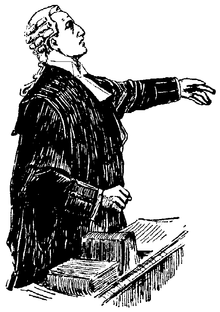There has to be 12 Justices of the Supreme Court. The 12 existing Law Lords were going to take over - Lord Scott was going to retire and be replaced by Lord Clarke. But Lord Clarke was succeeded as Master of the Rolls by Lord Neuberger leaving only 11 Justices. So who will be the 12th? It is currently predicted that Lord Justice Dyson will be appointed.
But will he get a peerage? Peerages cannot be given out under the Appellate Jurisdiction Act 1876 any more because the Constitutional Reform Act 2005 repealed it. He could be given a Life Peerage. Lord Clarke was given a life peerage in June 2009 before becoming a Justice of the Supreme Court in October 2009. Life Peerages are usually also given to the Lord Chief Justice if he is already not a peer (Lord Judge for example)
But the Government has said this:
All new judges appointed to the Supreme Court after its creation will not be members of the House of Lords; they will become Justices of the Supreme Court.
There was an idea that new Justices would not get a peerage but would be entitled to be called Lord and Lady as senior judges in Scotland are. But we have not heard anymore about this. So it looks more likely that the new Justice - will be Rt Hon SIr John Dyson, who will have to sit with his Baron and Baroness brother and sister judges as a mere Knight Bachelor.
It then looks likely that the Court will be stable for a while -until Lord Saville retires in 2 years time (although he has yet to sit in the Supreme Court - having only been an active Law Lord for 1 year before he was appointed to the Bloody Sunday Inquiry for 11 years - he is due to deliver his report and starting sitting in the Supreme Court this year).
Leveson Part 2 - Efficiency
-
Part 2 of Sir Brian Leveson's Review of the Criminal Courts has been
published. You can read it HERE.
Part 1 was published in July 2025 - previous po...
9 hours ago

Why would a peerage be necessary? We ought to be moving away from these automatic titles and honours. After all, it is supposedly the 21st century.
ReplyDeleteA peerage is not necessary - but it would be better if all the Justices of the Supreme Court were treated equally - either they all had peerages or they didn't?
ReplyDeleteA Barrister in London - I agree but there will have to be a transition phase until we reach the point where none of them have peerages. Of course, I am coloured by my dislike of automatic titles or honours attaching to any role as they do in (a) Judiciary; (b) Diplomatic Service; (c) Armed Forces.
ReplyDeleteThe choice from the 4 names will be interesting. Personally, I would opt for Maurice Kay because of his experience in the Queens Bench Division and in the Administrative Court. That is, so it seems to me, where there currently a gap in expertise.
But Obiter J - you have your way already - the Cabinet Secretary has confirmed that there will be no more automatic honours
ReplyDeletehttp://www.guardian.co.uk/commentisfree/2009/dec/31/new-year-honours-list
This has been put into action with the latest former Lord Mayor of London not getting a knighthood as used to be automatic since the 19th Century - Ian Luder got a CBE instead - the City were very cross -
http://www.thisismoney.co.uk/news/article.html?in_article_id=496508&in_page_id=2
Actually, given the honours system and the history, I deplore the kind of reasoning which appears to lie behind the decision not to knight Mr Luder. If Honours depend on ensuring that one only says the "right" things then they are probably not worth having anyway. It was perhaps politically unwise to be seen to defend anything to do with bankers and their bonuses but as time has moved on we have seen the government become a major shareholder in certain banks and the bonuses have continued and they continue for precisely the reasons put forward by Mr Luder.
ReplyDeleteBack in the time of John Major, knighthoods to judges were defended on the basis that awards should not be thought to depend on government approval of legal judgments.
Far better that the whole problem riddled system be consigned to history.